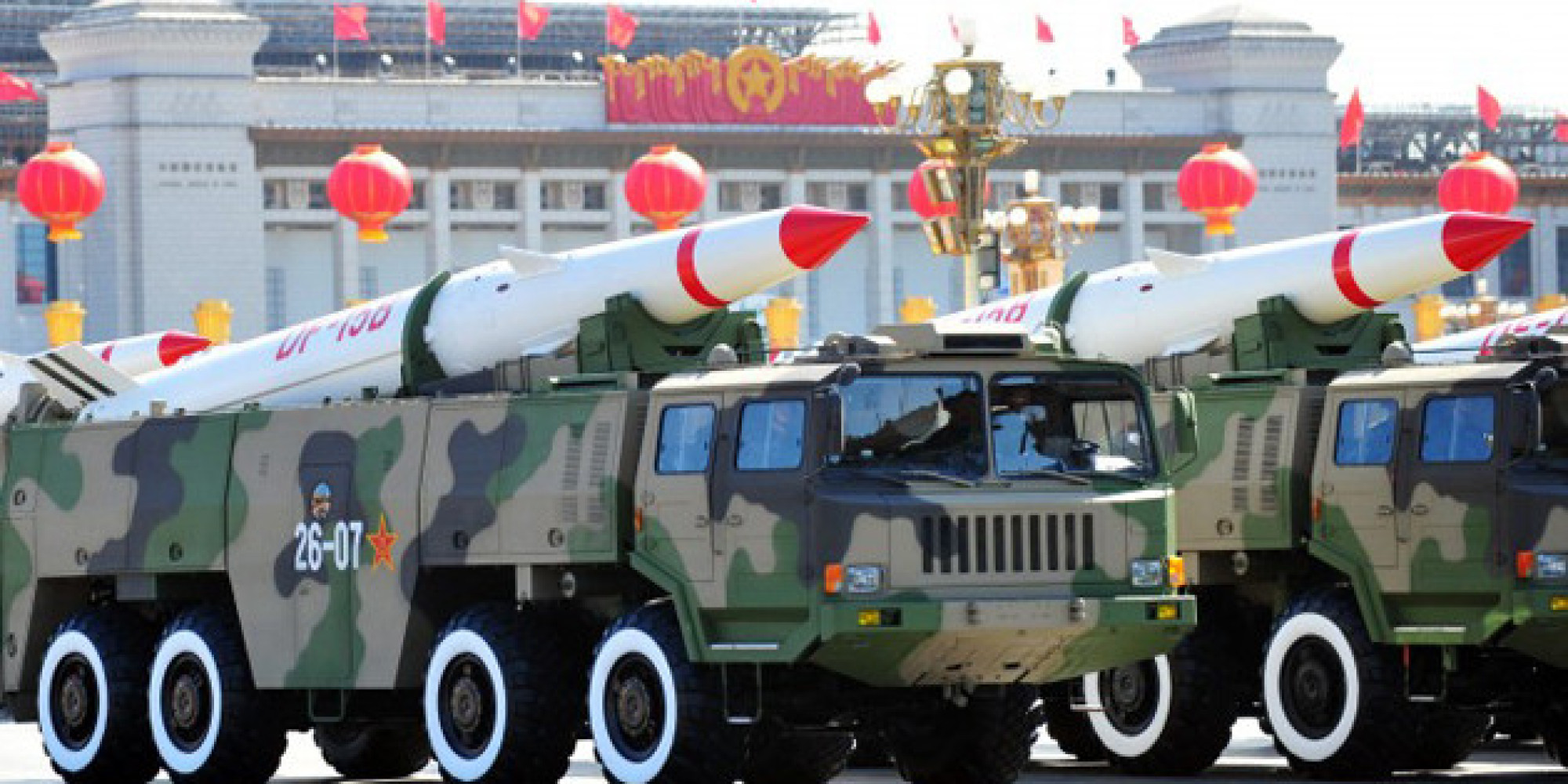 US, report says
US, report says
Wade Bennett
China continues to rapidly advance its nuclear weapons program in a growing arms race with the U.S. and Russia, with Beijing now conducting as many as five simulated nuclear tests per month. The U.S. averages less than one test per month.
In a document released by the China Academy of Engineering Physics, the institute said that between September 2014 and December 2017, China conducted around 200 laboratory experiments simulating the extreme physics of a nuclear blast.
The purpose of the tests, according to Pentagon officials, is to develop an arsenal of next-generation weapons in response to the U.S.’ own capabilities, the South China Morning Post reported on Monday.
“The use of small warheads will lead to the use of bigger ones,” Beijing-based naval expert Li Jie stated. “If other countries use nuclear weapons on us, we have to retaliate. This is probably why there is research to develop new weapons.”
Because of an international ban, China’s experiments are not full-fledged nuclear weapons tests. Instead, the tests are carried out using high-powered gas guns that fire projectiles at weapons-grade materials in labs.
The tests occur in tunnels deep under the mountains in Mianyang, where China’s main nuclear design facilities are based.
However, China has conducted just a fraction of the total number of live nuclear tests compared to the U.S., which has detonated more than 1,000 nuclear warheads since 1945, Professor Wang Chuanbin at Wuhan University of Technology pointed out.
Still, China’s growing nuclear efforts signal a new nuclear arms race that shows no signs of slowing down. What’s more concerning is that public opinion on such an arms race has yet to catch up with the reality, according to James Lewis at the Center for Strategic and International Studies.
In response to the growing threat of a nuclear arms race, the White House is considering a $1.2 trillion nuclear stockpile revitalization plan.
The Pentagon also announced its intention to develop new low-yield nuclear weapons for cruise missiles and submarines.
But these developments were a response to Moscow and not Beijing, Lewis said.
The U.S.’ own interest in revamping its nuclear program seems to have indirectly motivated China, he pointed out.
“After some debate, the U.S. decided it needed to think about warheads, without the need for actual tests,” Lewis said. “It wouldn’t surprise me if China saw all this and decided that it had better get in the game.”
China’s various territorial disputes in the South China Sea have also been an outlet for the country to justify its expanding military efforts.
Jie pointed out that that Beijing has pledged to never be the first to initiate nuclear arms, regardless of the circumstances.
In a document released by the China Academy of Engineering Physics, the institute said that between September 2014 and December 2017, China conducted around 200 laboratory experiments simulating the extreme physics of a nuclear blast.
The purpose of the tests, according to Pentagon officials, is to develop an arsenal of next-generation weapons in response to the U.S.’ own capabilities, the South China Morning Post reported on Monday.
“The use of small warheads will lead to the use of bigger ones,” Beijing-based naval expert Li Jie stated. “If other countries use nuclear weapons on us, we have to retaliate. This is probably why there is research to develop new weapons.”
Because of an international ban, China’s experiments are not full-fledged nuclear weapons tests. Instead, the tests are carried out using high-powered gas guns that fire projectiles at weapons-grade materials in labs.
The tests occur in tunnels deep under the mountains in Mianyang, where China’s main nuclear design facilities are based.
However, China has conducted just a fraction of the total number of live nuclear tests compared to the U.S., which has detonated more than 1,000 nuclear warheads since 1945, Professor Wang Chuanbin at Wuhan University of Technology pointed out.
Still, China’s growing nuclear efforts signal a new nuclear arms race that shows no signs of slowing down. What’s more concerning is that public opinion on such an arms race has yet to catch up with the reality, according to James Lewis at the Center for Strategic and International Studies.
In response to the growing threat of a nuclear arms race, the White House is considering a $1.2 trillion nuclear stockpile revitalization plan.
The Pentagon also announced its intention to develop new low-yield nuclear weapons for cruise missiles and submarines.
But these developments were a response to Moscow and not Beijing, Lewis said.
The U.S.’ own interest in revamping its nuclear program seems to have indirectly motivated China, he pointed out.
“After some debate, the U.S. decided it needed to think about warheads, without the need for actual tests,” Lewis said. “It wouldn’t surprise me if China saw all this and decided that it had better get in the game.”
China’s various territorial disputes in the South China Sea have also been an outlet for the country to justify its expanding military efforts.
Jie pointed out that that Beijing has pledged to never be the first to initiate nuclear arms, regardless of the circumstances.
No comments:
Post a Comment